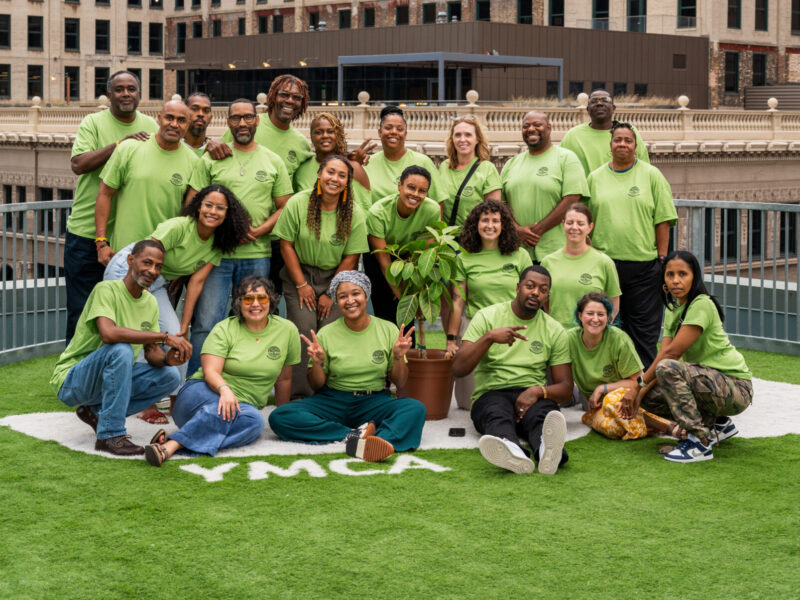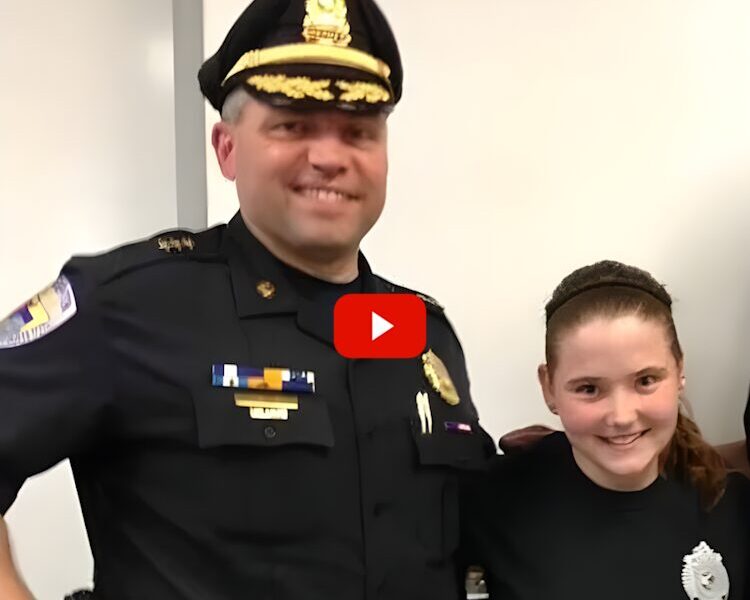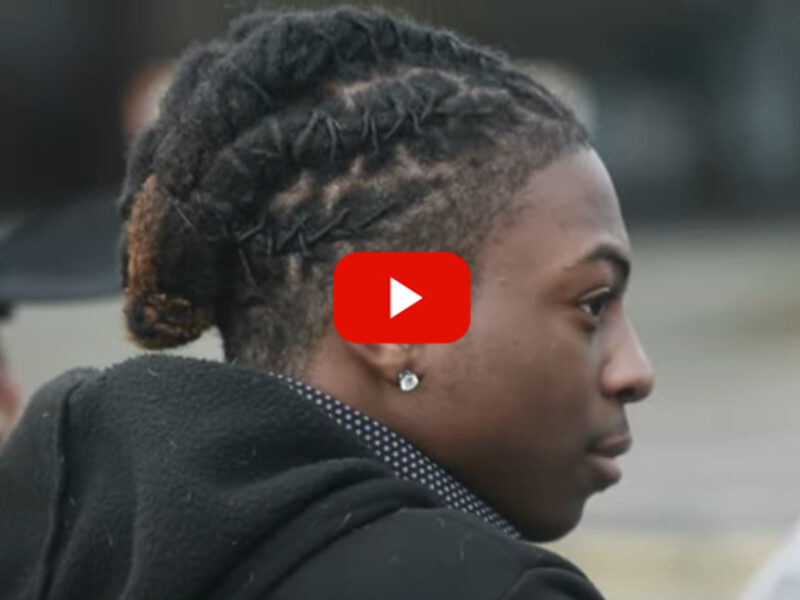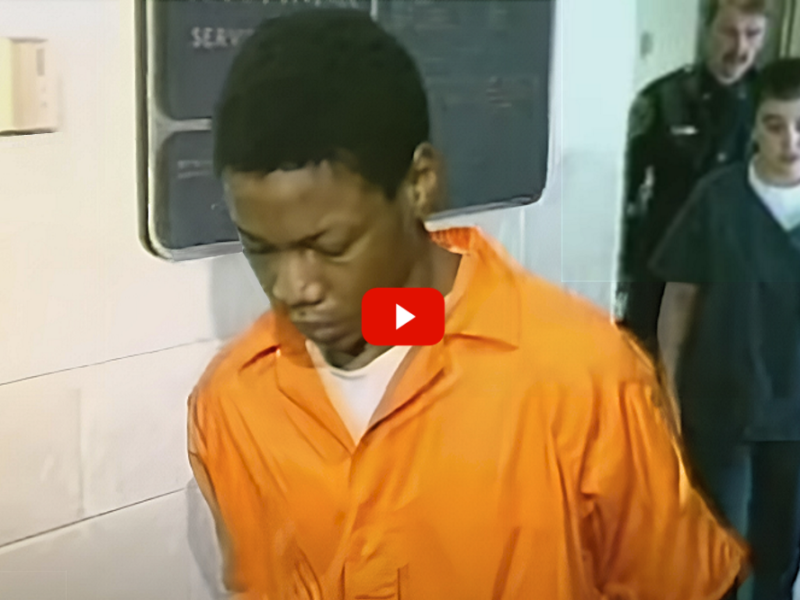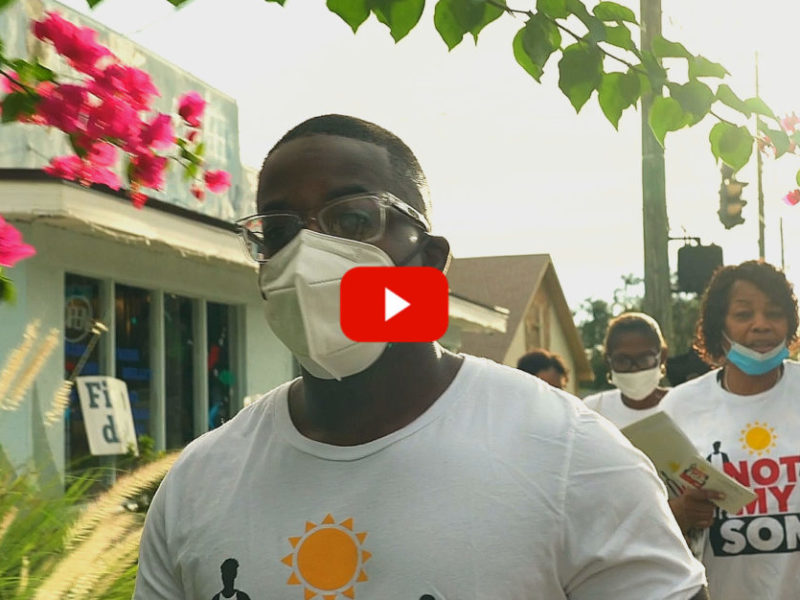Equal Justice USA (EJUSA) announced October 8 that it will partner with four new communities to build new restorative youth justice diversion programs. Restorative justice includes an accountability process that identifies root causes of youth criminal actions, while providing an opportunity for healing both for the person harmed and the person who has caused harm.
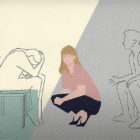
Youth leaving foster care, juvenile and other systems are aim of Washington housing effort
|
Implemented in June, HB 1905 establishes a five-year budget of over $5 million to reduce homelessness among those aforementioned groups. Washington’s Office of Homeless Youth will be responsible for much of that budget, administering $1.6 million in flexible funding that lets people who are allotted those dollars determine how to spend them on transportation, telephone or other everyday expenses.
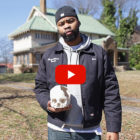
At home in Arkansas and globally, shooting survivor campaigns against gun violence
|
Between Jan. 1, 2022 and April 25, 2022, Little Rock, Ark. — the 24th most violent of 65 cities, according to the FBI's most recent data — counted 24 homicides. That compared to 21 homicides during the same period in 2021, according to the Little Rock Police Department’s most recent count. A disproportionate number of those murders involved guns, continuing a trend. Blacks — mainly males — accounted for all homicide victims under 30 years old in Little Rock.
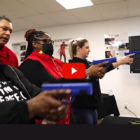
Youth activists, firearms trainers and police oppose unlicensed gun laws in Georgia and other states
|
On April 12, Georgia became the 22nd state allowing unlicensed gun-owners to carry a concealed weapon, one in a spate of so-called constitutional carry laws that have supporters and detractors, with the International Association of Police Chiefs among opponents.
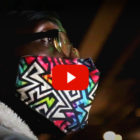
A gang-banger since 8th grade, former Blood sets a new course with a former prosecutor’s help
|
There is no recent official count of how many individuals have departed gang life. In 2012, the most recent year that the U.S. Department of Justice National Gang Center estimated the data, roughly 850,000 members were in some 30,700 youth gangs across the country. Those numbers decreased from 1996 through 2002, then increased steadily over the next decade. A 2014 study in the Journal of Quantitative Criminology found that 70% of gang members joined as adolescents and left before adulthood.
Why do young people join, why do they leave and how do they stay away?

A New Yorker’s one-time criminal charge, juvenile probation and homelessness
|
In the eyes of court officials with say-so over whether he remains free or on lockdown, Nasheem Heath has mostly made the right moves since, at age 16, he was arrested for pointing a pistol at a random stranger and snatching that man's necklace and cash. Heath has not been re-arrested. He has held a seasonal job with a moving company. What he still doesn’t have is a home to call his own or the kind of income that would let him afford it. I was angry,” said Heath, now 20, who was a homeless kid on that night in May 2017 when he committed that crime.

Touristy Savannah’s anti-gun violence campaign launches in fits and starts, with parents of the dead taking the lead
|
“It is an act of senseless violence that puts innocent families and children in danger,” said Savannah Police Chief Roy Minter, at a press conference about the two 20-somethings murdered and the six others left with wounds that weren’t life-threatening. Savannah’s gun violence has soared, according to WTOC-TV’s May 2021 analysis of Savannah Police Department data, to its highest recent level since 2016.

In Florida’s murder capitol, gun suicides are overshadowed by gun homicides
|
It had been scarcely a year since his son was discharged from the Navy following a suicide attempt, Ramon Day said, and only a few months since he’d voluntarily undergone in-patient care at Mental Health Resource Center in Jacksonville, Fla. So, when then 25-year-old Tyler Day returned from a Department of Veterans Affairs counseling appointment and offhandedly mentioned that he’d bought a gun, his father was stunned.
“You having a gun upsets me a great deal,” Ramon Day said, recalling his fright over his son’s revelation back in the summer of 2011. “If you would do me a personal favor, return the gun.”
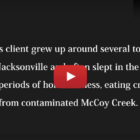
Florida Attorney Believes Lead Poisoning Is Partial Explanation For Low-income Neighborhood Crimes
|
VIDEOGRAPHER: JACOB LANGSTON
JACKSONVILLE, Florida — Teri Sopp’s former self stares down from a wall in Florida’s Fourth Judicial Circuit Public Defender’s Office. The painting, a gift more than a dozen years ago, bears silent witness as she works to free people also frozen in time, serving lifelong sentences for crimes committed before they turned 18. For one client, she’s arguing reduced culpability because of lead. She expects to argue the same for other clients. Sopp is the director of the resentencing project for juveniles serving life without parole.
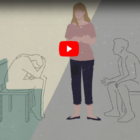
Education For Young People In Shelters Was Already a Challenge — Then Coronavirus Hit
|
More than 40,000 K–12 public school students in Washington experienced homelessness in 2017–18, a number that has nearly doubled in the past decade and likely will continue to grow because of pandemic-driven job losses. For these youth, remote schooling might mean attending class in a shelter room they share with their mother and two siblings. It might mean missing classes due to glitchy Wi-Fi or insufficient cellphone data. And, especially for homeless youth who are on their own, it might mean not having an adult who can help them with assignments and prod them to stay on track.

NY Orthodox Jewish Teenagers Charge COVID-19 Is Bringing Up Anti-Semitism
|
NEW YORK — They all had disturbing stories, and they all had a familiar ring to them.
Yakov, who declined to give his last name, was waiting in line at the Whitehall Terminal in Manhattan waiting to take a leisurely ferry trip across the bay to Staten Island when he was told to get out by other passengers. He was wearing a mask, he said, but that didn’t matter as much as his conservative garb.
“They’re looking for an excuse to hate us, and they found it in the virus,” the 16-year-old said. “The pandemic has given them the freedom to say what they always have wanted.”
Yehuda Weinstock took his children upstate to go apple picking. “We were treated like we had the plague,” he said. ‘What do you say to your children?”
Coronavirus and the fear it has stoked across the city after bodies were piled up outside hospitals in the spring has led to the resurgence of a social virus. Scarred by daily experiences of anti-Semitism, Hasidic Jews in Brooklyn fear the pandemic and the restrictions that come with it will incite hatred and violence toward them.
